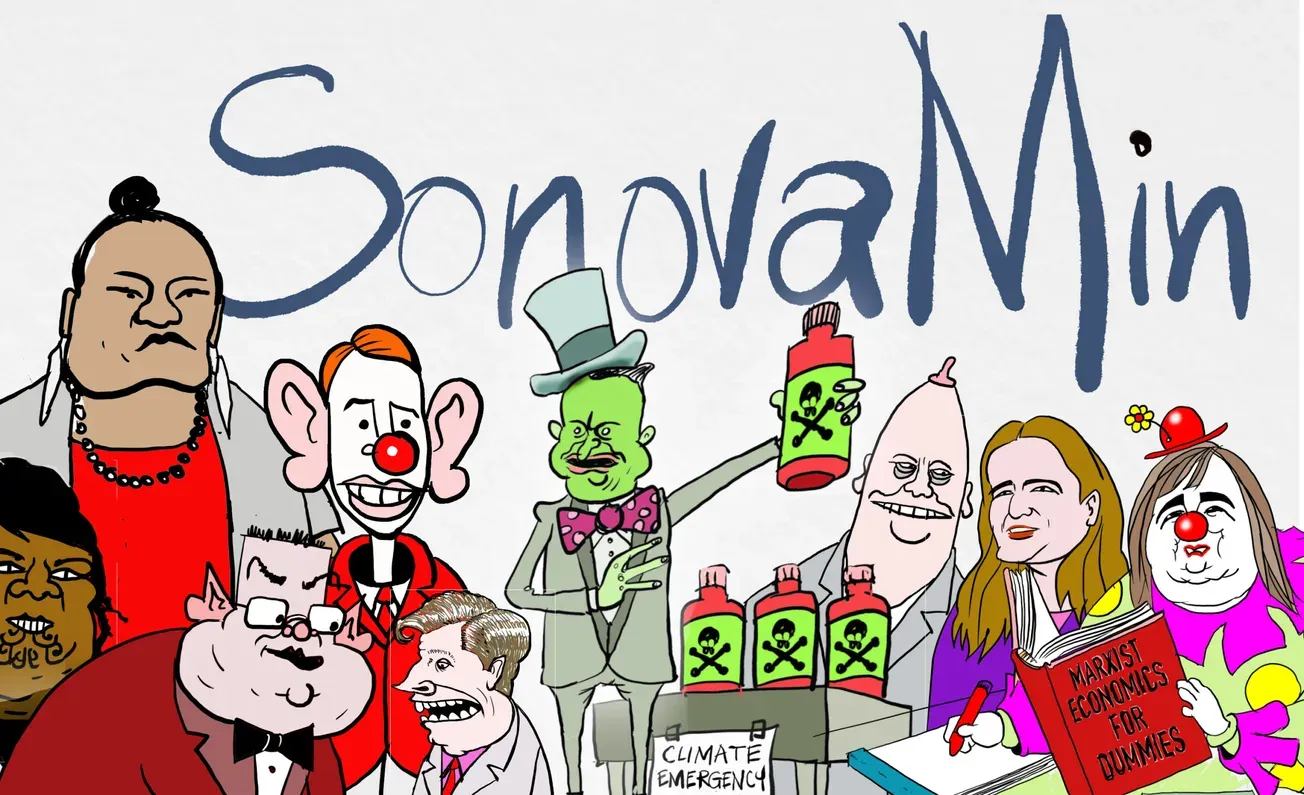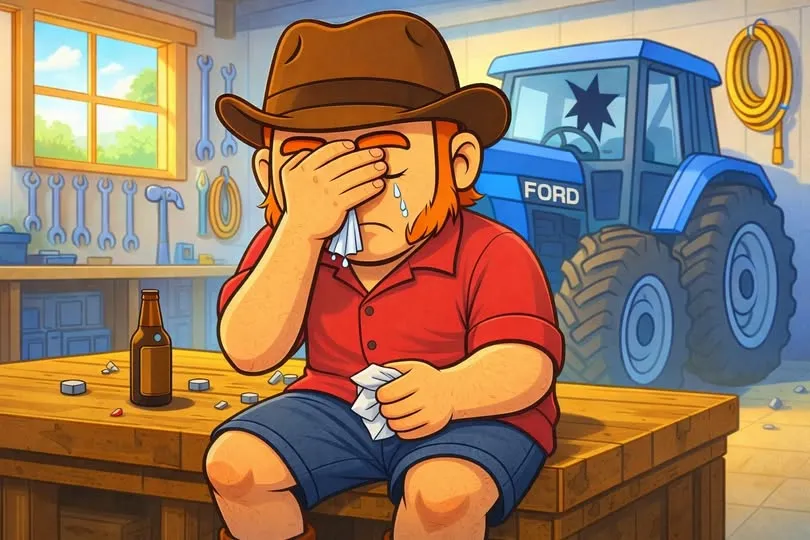Table of Contents
If you don’t have a Silver level membership yet you are missing out on our Insight Politics articles.
Who Needs Libraries When Nobody Reads?
A Summer Jeremiad
Here we are, back for another year of Insight. What did I do on my holidays, to borrow a well-worn essay topic? Well, lots and not much at all. Which, really, is a pretty good way to spend a summer holiday. One thing I did plenty of, as I so often did even in my childhood, was spend a lot of the summer drawing and reading books.
I spent part of the summer trying to recapture my long-lost skills in watercolours. Mostly, it’s been an instructive exercise in what an unforgiving medium watercolour really is. Its transparency means that, unlike acrylics or oils, mistakes can’t be painted over. That transparency also conspires with watercolour’s lack of fastness, to make it all too easy to turn what started out as vibrant, clear colours into muddy slush. Still, it’s been a pleasantly frustrating task to while away the summer days.
Mostly, though, I spent many, many pleasant hours reading. Either catching up with old friends, like Henry Treece’s “Celtic Tetralogy”, or the latest in independently-published fiction, or newly-discovered oldies. Of the latter, a chance find in a street library is one of my favourites: the Michael Moorcock-curated Best SF Stories from New Worlds, Vol. 5.
Here is a slim little tome which, if nothing else, leads one to wonder just what, exactly, “New Wave” SF writers were frying their brains with, in the early 70s. Take, for instance, Roger Zelazny’s and Danny Plachta’s The Last Inn on the Road: “the last hoodlum priest and his switchblade-wielding nun-moll do battle with a motorcycle gang of senile delinquents”. Sadly, the story didn’t quite measure up to the promise of the premise.
On the other hand, Norman Spinrad’s The Last Hurrah of the Golden Horde is trippier than Dennis Hopper cross-dressing as Barbarella and trying to explain the plot of Zardoz. To describe it as a violin-playing sonic assassin directing a battle between the Peoples’ Liberation Army, Chicago gangsters, and half-naked starlets, in a CIA-funded ersatz Las Vegas in the Sinkiang desert, with the whole affair gatecrashed by the senescent last descendants of Genghis Khan’s army, hardly does it justice.
But I digress. As I was saying before I so rudely interrupted myself, is that I am and always was the sort who was just as happy, if not happier, spending the summer holidays immersing myself in books rather than the beach. As C S Lewis once said, “I am a product of endless books.” I blame that in part on my local library, in the town where I grew up.
As it happens, I paid a brief visit to that town, just a few days ago. Which is always a slightly surreal exercise. As Death Cab for Cutie once said, if you feel just like a tourist in the city you were born, then it’s time to go. The old town is almost-but-not-quite the same, but all-too different. My home town in particular has long had a disdain for its own past. Or at least, its developer class has: even the week I went, there was a furore about a historic home on the beachfront being demolished to make way for some modern eyesore.
That fate long ago befell the old library I loved so much. In its place is a modernist monstrosity resembling a stray golf ball mutilated by the groundskeeper’s ride-on mower. Its nickname is “the Death Star”, and well-earned it is.
Floor after gleaming floor of “multi-function learning spaces”, a pretentious coffee shop of course, and far too many “modern” couches. I imagine they have a devil of a time in winter chasing the city’s homeless away from what must be invitingly warm sleeping spaces. In summer, it seems, the homeless just seek the shade of the park outside, where they sit under trees and gibber at passers-by.
The only thing that’s in somewhat shorter supply, in this ultra-modern library is books. Oh, they had them, all right — but, at an eyeball estimate, far fewer arranged with Marie Kondo severity on its five levels than the old building used to cram into a single floor.
As if to ram the point home, the re-developers have demolished and banished the old feature wall which used to stand in the park outside the library, a weathered slab of marble looking like a set from George Pal’s 1960 The Time Machine. For decades, that wall stood to sternly inspire the citizens of my town with its time-blackened, cast-iron epigram:
All that mankind has done, thought or been: it is lying as in magic preservation in the pages of books.
There was no attribution to this wonderful saying, though I later learned (in the library!) that it was a quote from Thomas Carlyle. What magical words, indeed! For as long as I could remember, they had entranced me with their wisdom and inspired me to learn.
Alas, the Edwardian gents who established the city’s cultural precinct (including law courts, a surprisingly impressive regional art gallery, a rotunda which once echoed to the footsteps of a Prince of Wales, and a small park where a later Prince of Wales, the current King, once charmed hundreds of schoolchildren shuttled for an otherwise-dull outing) were of a far more serious mindset than today’s elite. Who cares about stuffy old books, when you can have floor after gleaming floor of “experiences”?
This perhaps makes it fitting that every part of this “library” is subject to the modern fad of “dual naming” (and, of course, prefixing staffs’ names with their “pronouns”) with the supposed local Aboriginal dialect.
At first, it seemed incongruous to me that a place supposedly dedicated to the written word should so grovel at the feet of a culture which never came even close to developing written communication, despite its (bogus) claim to be the “world’s oldest”. But, then it struck me just how appropriate it really was, in this case.
After all, the claimed language is, like Te Reo, really a modern pidgin constructed out of very little by grievance-mongering academics subsisting on a steady diet of government grants. Made-up words, used to promulgate anti-Enlightenment bullshit calling itself “truth-telling”, by otherwise unemployable midwits parasiting themselves off the very taxpayers they so endlessly sneer at.
Even more appropriately, it’s entirely symbolic of a culture which is fast forgetting even how to read.
As I remarked earlier, the old feature wall often reminded me of something from the set of The Time Machine: a monument of faded grandeur to a greater, vanished culture. The new, ultra-modern library is a monument of shiny grandeur to a much lesser culture which is fast supplanting the greater old. Like the falsified “Aboriginal” language, its language is more and more made up of gibberish invented by mendacious academics.
And its speakers are descending ever further on an asymptotic trajectory to a post-literate culture.
A culture which endlessly swipes, types, and scrolls, but writes and reads even less. A culture where books have been replaced with “texts”, which include everything from witless Marvel superhero spectaculars to the inane gibbering of Tik Tok “influencers”. Even its language, as one writer noted some years ago, is more and more composed of monosyllabic grunts: lol, rofl, omg. People read newspapers less and less, which is probably for their betterment, but fancy themselves “informed” by scrolling memes.
When my mother sold up the family home after nearly sixty years, one of the many tasks was dispersing the books (the ones I hadn’t already taken with me, anyway) — a slightly less herculean task than sifting, like Heinrich Schliemann, through the layers of detritus in my father’s shed. But perusing what had been considered “children’s literature” in even the early 1960s was nothing if not instructive. Ivanhoe, Tarzan of the Apes, Black Beauty, Wuthering Heights, Verne, Defoe, Dumas, and Dickens.
What are the most-read children’s books, today? Mostly, it seems, picture books. Apparently, the very thought of mumbling through a page of just words, without colourful pictures to clue modern minds into what those strange bugs crawling on the page (to borrow from Edgar Rice Burroughs’ Lord of the Apes) might mean is just too daunting a task for modern young minds. At least the Harry Potter books are picture-less, but their prose, much as I admire their story-telling, is hardly challenging. Harry Potter and the Philosopher’s Stone has a Lexile level of 800; Twenty-Thousand Leagues Under the Sea, which my parent’s generation confidently expected similar-aged children to read, has a Lexile level of 1100.
But J K Rowling’s nonetheless excellent books were first published nearly thirty years ago. They’re a generation old – and it’s a debatable point whether a modern generation would even bother to read them when they can just watch the movies. Movies are, after all, according to the dumbed-down standards of modern learning, just as much a “text” as a dull old book.
Whilst I earlier mocked the Marvel movies, it should also be considered that even the comic books of half a century ago were often of staggering literary merit compared to their dreadful descendants. One I remember pilfering from my much older brother, when I was still in single-digit birthdays, posited a future where bestial troglodytes were the future, downward spiral of human evolution. These half-neanderthal, half-werewolf creatures slouched their way through the remnants of technological glories they were utterly incapable of understanding. All they did understand was that press-button-make-big-boom-boom-on-bad-tribe.
A ludicrous, comic-book future? Perhaps. But, watching as mediaeval savages cripple globalised trade networks with high-tech weaponry they certainly wouldn’t have a chance of inventing, but which advanced computer wizardry makes as easy to wield as lopping off heads with a machete, are we already halfway there?
Nearly 2,000 years ago St Augustine wrote one of the great books of Western civilisation, The City of God, as the shockwaves of the Roman empire’s collapse into barbarism reverberated through what was then the civilised world. Who, I wonder, will write the great book of the final collapse of the Enlightenment civilisation?
And why would they bother? There’ll be no one left even capable of, much less inclined to read it – and libraries will be too busy making space for prayer rooms and corroborree grounds to even stock it.
If you enjoyed that FREE taste why not subscribe to a SILVER level membership today?
**If you already have a Basic or Bronze Membership upgrade your subscription here.
You will not only get access to Insight Politics articles like the one above but you will also gain access to all our puzzles, SonovaMin and BoomSlang’s fantastic cartoons, and our private members’ forum MyBFD as well as enjoying ad-free viewing.
$25 a month ($6.25 a week) (89c a day)
$300 a year









